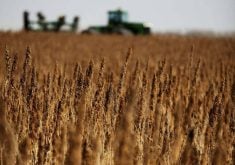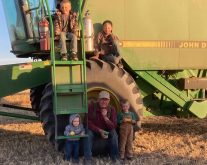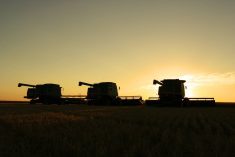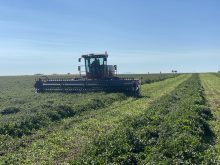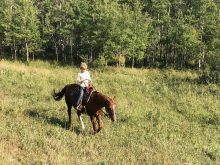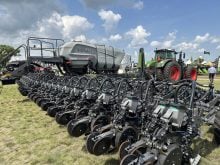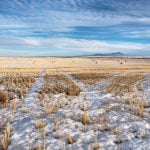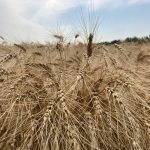There are a lot of things in this life that are difficult to process. Weather is one of them. When a storm tore through Manitoba from October 10 to 12, delivering gale force winds over a long stretch of time, accompanied by an entire season’s worth of snow, harvest, tillage and the rest of our hopes for fall came to a full stop.
At the time of this writing, I have 90 acres of soybeans stranded on a wet field, inaccessible by tracks, wheels or float tires. I can see the ripe stocks swaying back and forth. They were once loaded with pods, but now, who knows? The field is still inaccessible.
Read Also
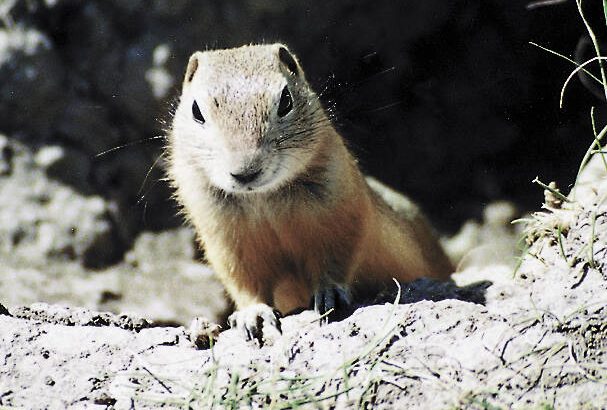
PMRA denies strychnine emergency use request
Emergency use of strychnine for the 2026 growing season has been denied by the Pest Management Regulatory Agency.
Much of the snow has already melted, but it’s still too early to tell if any one of us here in south-central Manitoba will be able to finish the fieldwork we had planned.
But, that is farming. I only have 90 acres, and I won’t pretend to be shouldering the same stress as someone with the bulk of his or her crop standing out there in these conditions.
I am sure we both have a story or two to tell of the thoughts and feelings that were shared in our households. Perhaps your power went out for a while. Perhaps you were in the field pushing to finish when the storm hit. Perhaps you have livestock, and at the storm’s acme, you had to do chores or otherwise brave the elements.
To whom do you direct the cursing when the devastation is not in your control? Most farmers with more experience will say something pat like, “Well. No point getting mad at the weather.”
Correct. There is no point getting mad at the weather. However, what usually follows is not anger, but a list of self-critical regrets, such as, “Had we pushed harder, we could have finished before the storm.”
To defer the feelings we can’t justifiably hold against something like weather and project them back onto ourselves is not healthy and is not really coming to terms with the fact that a storm isn’t our fault.
These are difficult things to process. Especially for a group of people who pride themselves on being strong, resilient and unflappable. At least, that’s what the veneer suggests.
The unspoken expectation that farmers have the capacity to support the mental load of growing a crop they don’t set the price for, in a marketplace they don’t control and in an outdoor environment vulnerable to arbitrary devastation, and then process all of that in healthy ways all on their own is irrational and antiquated, given what we know now about mental health.
For many smaller farms, it’s just one or two people. If things don’t work, we blame ourselves. If we make mistakes, we blame ourselves. And in many of these instances, we don’t share. Accounts of our mistakes or misadventures may not even be divulged at the local coffee shop. We stomach these things and if we’re bent to be negative, unless we find ways to let it out and process these thoughts, they will fester and grow into something ugly.
This is not an indictment. If anything, this is a wake-up call. There is a lot of talk about mental health in agriculture these days, and I think that is a good thing.
When I think about aging on the farm, maintaining my mental health is a high priority. I’ve never been one to care too much about veneers, but if chasing mental health means being more vocal advocating for farmers to seek counselling or take up journaling or take time to discover what mental health looks like for them, I’ll happily do it.
There’s nothing wrong with getting help. There is, however, a lot wrong with not getting help. You may believe you’re fooling those around you, but I’d be willing to be you’re fooling very few.
I still don’t know how to properly process weather events on the farm. They can be terrible and they can ruin operations. But I do know that nothing is more important and more gratifying than looking inward, figuring out what it is you need and then making moves to fix it. We all need help with our mental health from time to time. If anyone tells you otherwise, they are lying.
We’ll see about those soybeans. Hopefully, by the time this gets published, it’ll all be in the bin.



